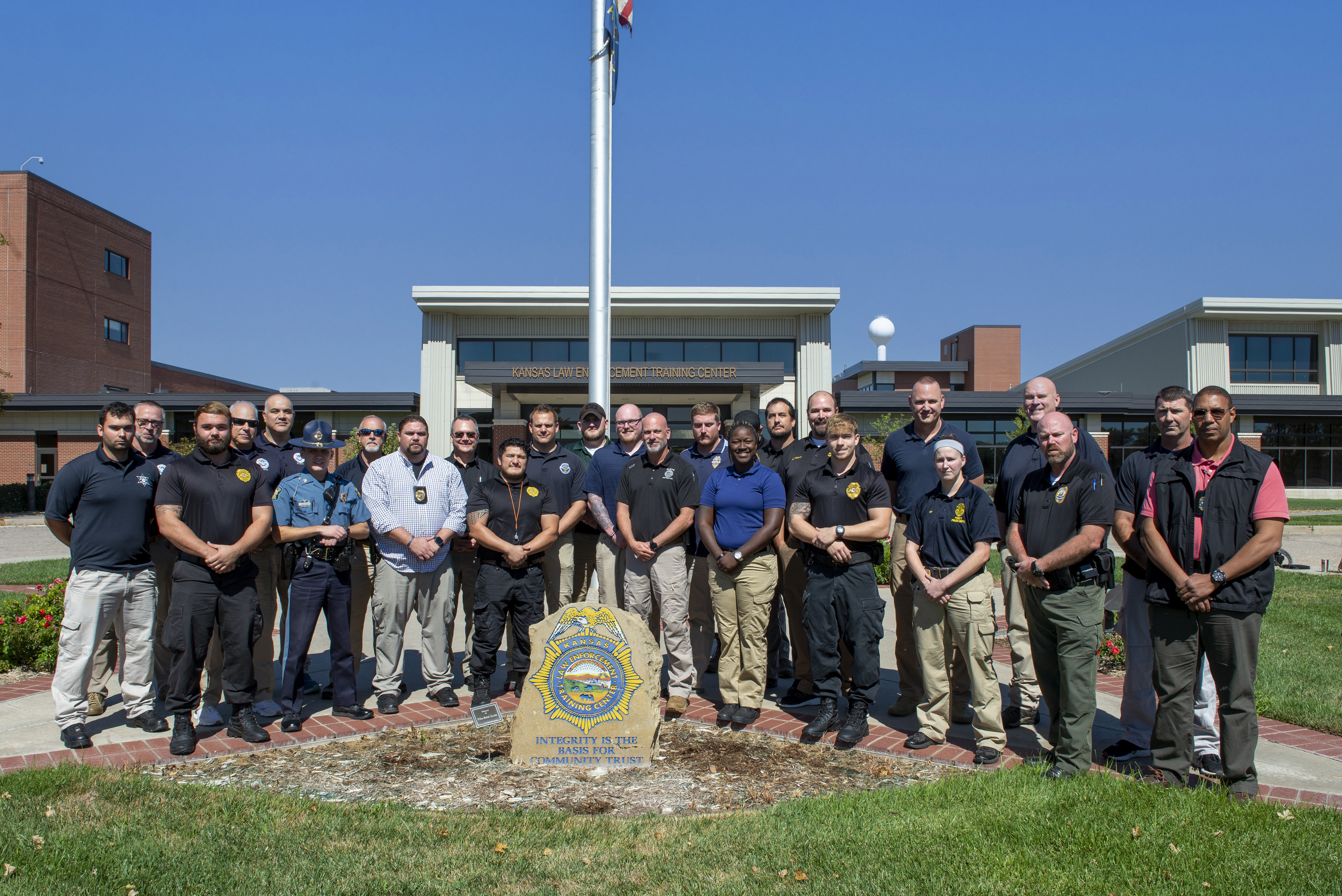Kansas Officers Graduate Use Of Force Instructor Training Program

Instructors from the Federal Law Enforcement Training Center (FLETC) concluded their two-week Use of Force Instructor Training Program today at the Kansas Law Enforcement Training Center (KLETC).
The program provided the attending officers with foundational information and skills to design, develop, deliver, and evaluate others making critical decisions related to using force. The first week of the program covered constitutional foundations, in conjunction with the Constitution's Fourth Amendment, and how previous Supreme Court rulings play into the use of force.
"There is no more important topic in law enforcement training than the constitutional limits on the use of force," said KLETC Executive Director Darin Beck. "We appreciated our federal partners coming to Kansas to train experienced officers in not only the latest law but the most effective instructional methods."
"The first couple of days of the program is a refresher for the officers," said FLETC Lead Instructor Christopher Lair. "We travel with an in-house attorney and specifically discuss these cases and how they apply to police uses of force."
Lair said the Supreme Court Case Graham v. Connor is the foundational playbook for what law enforcement officers can do regarding the use of force. The 1989 Supreme Court ruling outlined several factors used to determine whether police force is reasonable, including the "severity of the crime at issue," "whether the suspect poses an immediate threat to the safety of the officers or others," and "whether he is actively resisting or attempting to evade arrest by flight."
The second week of the program became more dynamic and involved the use of force scenarios, some of which were designed by the participants. Paul Sullivan, a Senior Instructor for FLETC and a graduate of KLETC's 126th Basic Training Class, said that the instructors ran the students through FLETC scenarios before having them write their own.
"They were able to get hands-on experience," he said. "It's not only about the student going through a scenario use of force encounter, but how that student can write one and then take their classmates and run them through the scenarios."
Officer Faith Jolly of the Gardner Police Department enjoyed the program and commented that there was a lot of valuable information. She found that the practical scenarios were particularly applicable and realistic.
"The practice exercises really stood out," said Jolly. "The realistic training over real-life scenarios will be crucial when training officers at my agency."
To graduate, the participants must pass a written multiple-choice exam, answer and discuss questions related to the use of force, and successfully develop five graded practical exercises. The 21 participants who completed the course came from law enforcement agencies throughout Kansas and Missouri. They will take their knowledge from this program and instruct others at their agencies.
"We understand that two weeks is a big ask for a lot of these departments, and we are grateful for the class of 21 that we have," said Lair. "The time and dedication of the officers to attend such an intensive two-week course is a testament to their agencies."